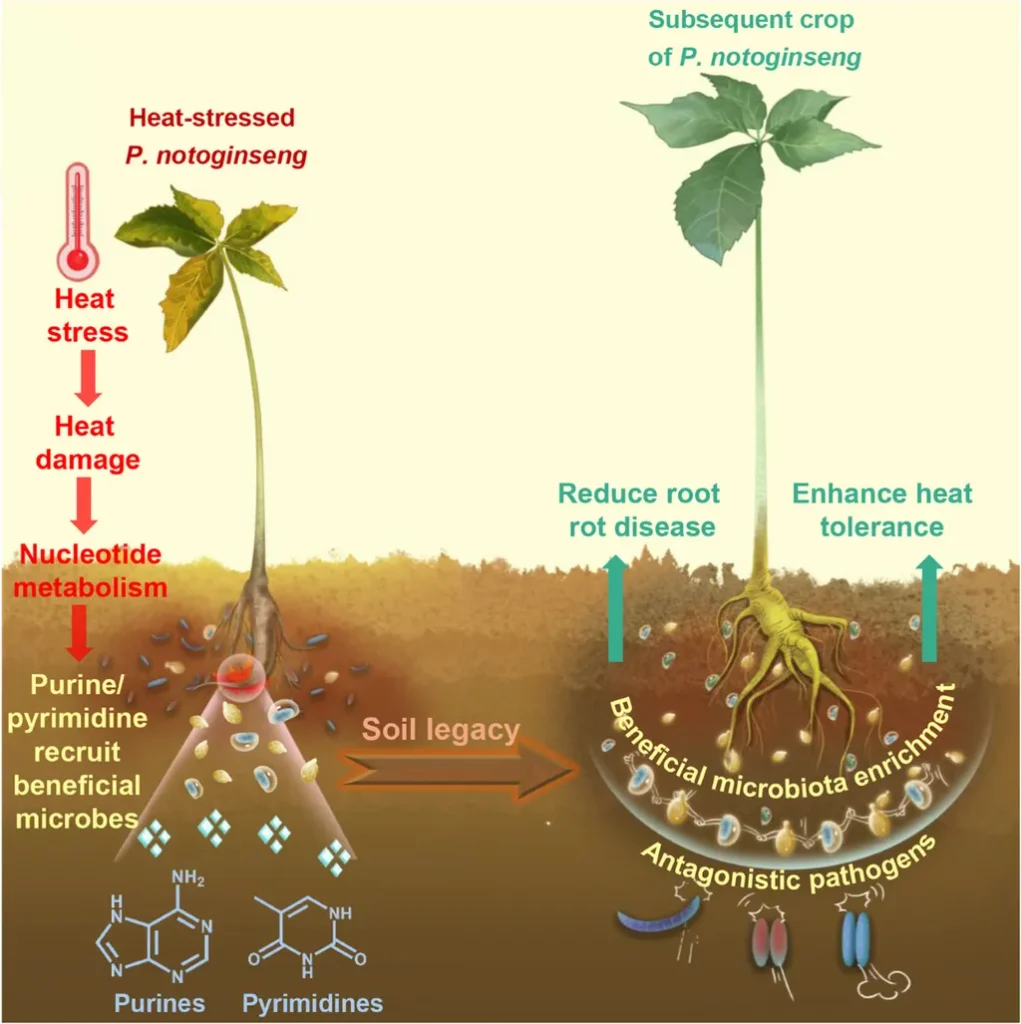In a groundbreaking study published in *Plant Stress*, researchers have uncovered a novel approach to combat heat-induced leaf chlorosis in Ginkgo biloba seedlings, offering a promising strategy for enhancing thermotolerance in woody plants. The research, led by Qiutong Xu from the School of Computer Science and Engineering at Sichuan University of Science & Engineering and the College of Environmental and Resource Sciences at Zhejiang University, delves into the dynamic world of the phyllosphere microbiome—the community of microorganisms that inhabit the surface of plant leaves.
Ginkgo biloba, a woody perennial highly susceptible to heat stress, often suffers from leaf chlorosis under elevated temperatures. The study investigated the dynamics of the G. biloba phyllosphere microbiome during seedling development and its response to acute heat stress. The findings reveal that as two-year-old G. biloba seedlings grow, their phyllosphere microbiome matures, characterized by increased microbial alpha diversity and the abundance of potentially beneficial microbes such as Bacillus and Spirosoma species.
However, when subjected to a 40/30 °C (day/night) heat regime for two weeks, the phyllosphere microbiome underwent drastic compositional shifts. “We observed a significant reduction in the abundance of Bacillus and Spirosoma, while Microbacterium and Chryseobacterium became more prevalent,” explains Qiutong Xu. These shifts were accompanied by chlorosis in the leaves, reduced leaf soluble sugar content, and altered levels of catalase, superoxide dismutase, and peroxidase—key enzymes involved in oxidative stress responses.
To test the potential of microbial transplantation as a therapeutic intervention, the researchers transplanted leaf microbiota from healthy leaves onto heat-stressed seedlings at two dilution levels. Remarkably, a two-fold dilution inoculation restored Bacillus abundance, reduced catalase and peroxidase activities, and enhanced superoxide dismutase levels, collectively attenuating chlorosis symptoms. “Our results demonstrate that native phyllosphere microbiota can re-establish protective microbial assemblages and modulate host oxidative stress responses under extreme heat,” says Xu.
The implications of this research for the agriculture sector are profound. As global temperatures continue to rise, heat stress poses an increasing threat to crop yields and forest health. The ability to mitigate heat-induced chlorosis through microbial transplantation offers a promising strategy for enhancing thermotolerance in woody plants, potentially revolutionizing forestry and horticulture practices.
This study not only provides a deeper understanding of the role of the phyllosphere microbiome in plant stress tolerance but also paves the way for innovative microbiome-based solutions. As Qiutong Xu notes, “Targeted microbiome transplantation could be a game-changer in our efforts to combat the adverse effects of climate change on plant health.”
The research published in *Plant Stress* opens new avenues for exploring the potential of microbial communities in enhancing plant resilience. As the agricultural sector grapples with the challenges posed by a warming climate, such advancements in agritech could prove invaluable in safeguarding our ecosystems and ensuring sustainable food production.

